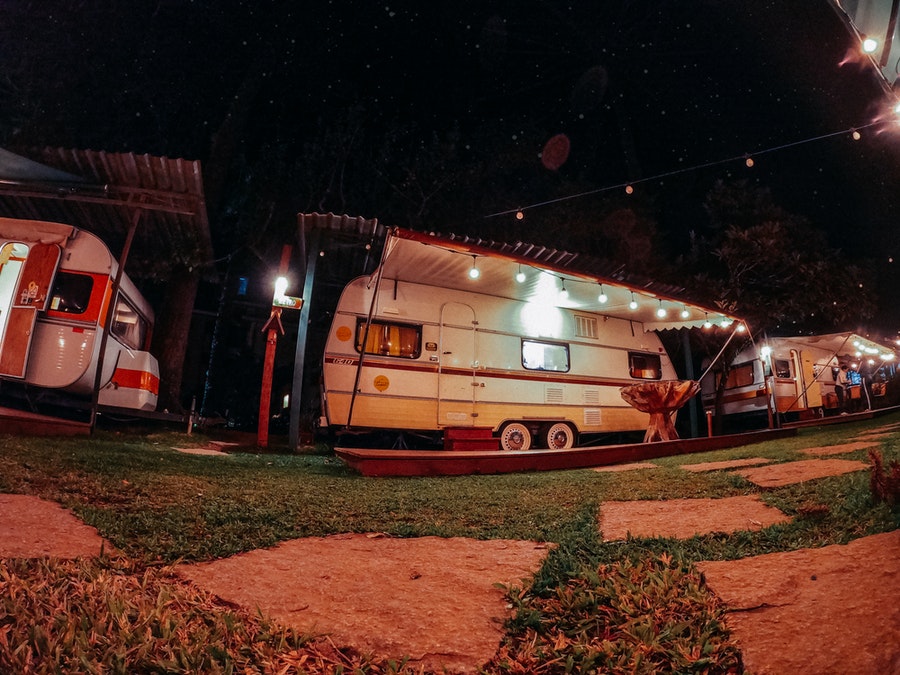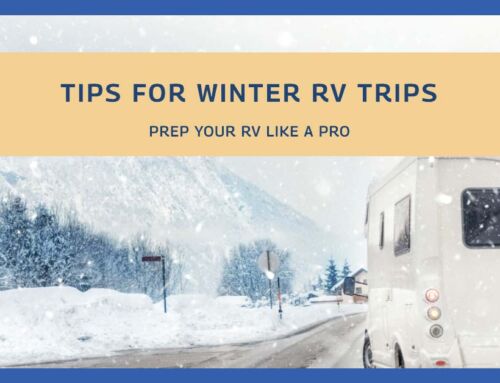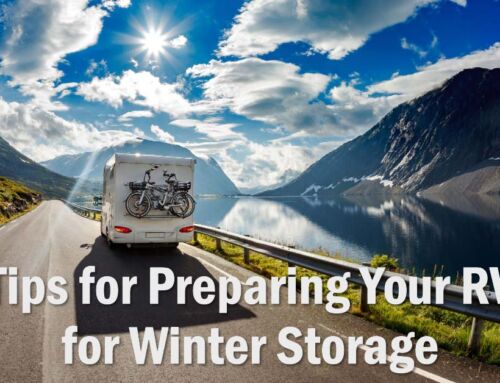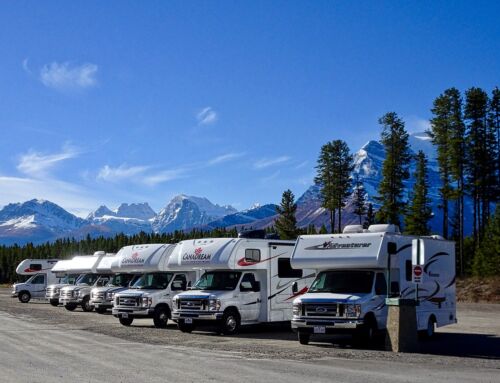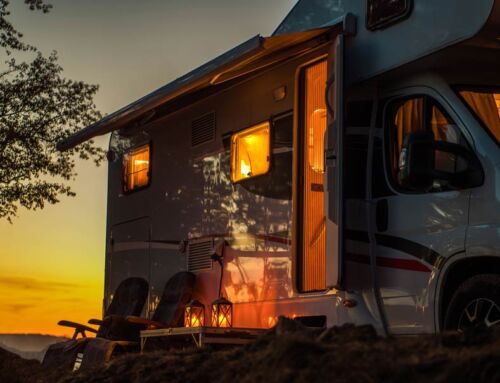Even though winter weather conditions in Sonoma County aren’t considered harsh compared to the East Coast, it makes sense to take good care of your RV before it goes into storage for the season.
It doesn’t take freezing temperatures for you to properly maintain, store and prepare your RV for hitting the open road in spring.
Water Removal
Leaving water anywhere in your RV can spell trouble, especially in water lines. Therefore, the most important thing you can do is remove all sources of water.
The checklist includes:
- Draining tanks
- Running all faucets and the shower
- Flushing toilets
Once the water is drained, blow air through the water lines to dry up and remove any remaining water.
After drying the lines, turn off all the faucets and cap all drains.
Pick up a special antifreeze made for RV’s and add into the black and gray tanks, in addition to the sinks and shower drain. This helps protect all the functioning parts (traps, valves, and seals) from the cold.
Avoid getting the antifreeze into your clean water tank, which is a concern if you use a pump to move the antifreeze more evenly through the lines, tanks, and drains.
The Engine
An engine inspection is key before storing your RV.
As you check fluid levels, top off the radiator with antifreeze, as well.
Adding a fuel stabilizer to the gas tank keeps fuel fresh for up to a year or certainly during the months in storage. A fuel stabilizer prevents sticky gunk from building up in the engine, as well as allowing you to keep any remaining gas in the RV while stored.
Battery Maintenance
Because a less than fully charged battery has the potential to freeze faster than a fully charged battery, charge it before removing and storing in a dry place.
Unplug all electronic devices and appliances.
Cleaning
A good winter cleaning, both inside and out, will prepare your RV for the weeks in storage and save you time in spring.
Defrost the freezer while cleaning up the rest of the kitchen area. Wipe all counters down with a bleach or other anti-bacterial cleaner. Sweep and scrub the floors. Clean appliances.
Clean everything out of the cabinets, refrigerator, and freezer because you don’t want to find spoiled food or worse yet, leaving behind something mice want to munch on.
Rodents and Pests
To avoid mice and other rodents using your RV as a winter home, repair or cover any holes, even the smallest of holes, so they cannot gain entry. You can use steel wool, which repels them, to stuff into and block small holes.
Exhaust pipes are another way for mice to gain entry to the RV, so cover or block them. Cover all vents including those for appliances and fans.
Place deterrents around the RV for another layer of protection from the rodents. Things like traps, mothballs, cedar chips or dryer sheets help to keep them out.
Exterior Inspection
A thorough inspection of the exterior is important to catch and repair any damaged or cracked seals or seams. Make RV repairs prior to storage to prevent the possibility of water damage or rodents getting inside.
Exterior Protection
The best option is to store your RV inside. If that’s not an option and you’ll be storing your RV outside, it should be covered to protect from cold temperatures and more importantly, rain.
Don’t forget to cover and protect tires, too.
It also pays to read the owner’s manual for additional recommendations for RV storage and maintenance.
Consider these things before storing your RV. By keeping up with maintenance and preventive wintry weather maintenance, your RV will remain in top condition during and after storage.
